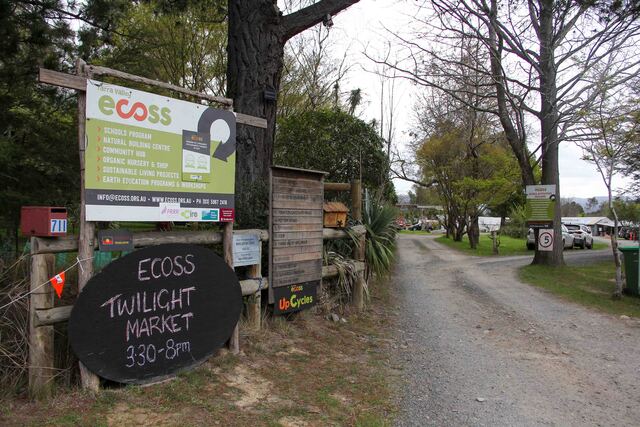Following the release of the Australian Universities Accord on February 25 calling for HECS to be “simpler and fairer,” the federal government has announced new reforms for students with HECS and HELP loans.
Published just prior to the delivery of last week’s 2024 federal budget, the federal government has declared that they will be cutting roughly $3 billion from student debts Australia-wide. Financial support in the form of payments for student placement work is also a part of this new scheme.
Lilydale resident and student of biomedical science Cassidy Iedema said, “I am very concerned about paying my HECS debt back, especially because I owe so much at the moment and have so many years of university still to complete.”
“The fact that they are waiving some student debt makes me feel better but there is still so much more that needs to be done, especially regarding placements undertaken by students,” Cassidy said.
Currently, the government’s changes to the HECS and HELP loan programs mean that $1200 is deducted from the total HECS sum owed by students with a debt over $26,000. Students with a HECS debt of $40,000 will see a cut of $1800.
State president of the Country Women’s Association of Victoria Jennifer Nola said, “this debt cut is only a temporary measure. Our issue is that the indexation is still based on the CPI. For some people in the last three years, their loan has increased by 15.7 per cent which is absolutely huge and unmanageable compared to when debts rose by one to two per cent.”.
“The Australian Credential Regulation Authority (the financial services regulator) now requires banks to consider the HECS and HELP debt as similar to a credit card debt when you are applying for a housing loan.”
“We’ve already got a housing crisis and now people are getting out there with a reasonable deposit and they might have a good job but with the addition of that $50,000-$60,000 HECS debt they are being knocked back for housing loans when previously they weren’t,” Ms Nolan said.
Where last year’s indexation rate sent HECS debts skyrocketing by 7.1 per cent, leaving students who had paid off thousands of dollars owing more by the end of 2023 than what they began with before they had made any payments, this year’s indexation rate is scheduled to be 4.1 per cent as of 1 June.
Ms Nolan said, “Last year’s 7.1 per cent increase meant that people who had been in their part time jobs and were trying to pay off their loans found that they owed more at the end of the 12 months than they did at the start, even though they had been paying it off for the whole year.”
“We are asking the federal government to remove indexation on tertiary students’ HECS/HELP loans to enable young Australians to more quickly repay their debts.”
“This indexing is meaning that the debt just keeps going up and up and young people are becoming despondent about the prospect of ever achieving the dream of owning a home.”
Today, the average Business, Arts and Law degree will cost roughly over $48,000, with degrees in STEM costing around $28,000.
Economist and HECS developer and consultant Bruce Chapman said, “Right now, humanities and arts students are most likely paying more than what it costs to teach them which is inherently unfair.”
“Arts have the highest charge for HECS per year due to the radical price changes elicited by the former government in 2020 and this is a major problem in the whole system.”
“The price for arts students, compared to four years ago, went up by more than double whilst prices for Science, Technology, Engineering and Medicine (STEM) which used to be high came down. Before the Accord process began when this price change happened, I thought that this was a major mistake and that the change in the prices was not going to achieve what the government at the time wanted, which was to encourage students to choose STEM subjects,” Mr Chapman said.
As the designer of the implementation of HECS in 1989, Mr Chapman obliged to help with the University’s Accord which commenced roughly 18 months ago and recommended that teachers, nurses and humanities students who expect to earn less from their degrees, should pay less than students who expect higher incomes.
Mr Chapman said, “When you change the prices for something like arts or anything, it is going to have very little effect on what people want to study.”
“There are thousands of students who think ‘this is unfair but I will enrol anyway because this is what I want to do.”
“I hope that the prices for humanities and other areas where people don’t expect to earn that much fall, and I hope that the other prices in compensation will go up for people who hope to do well in the labour market,” Mr Chapman said.
Highlighting another issue with the current HECS system, Mr Chapman noted the incentivisation for those with a HECS debt to earn below the threshold of $51,550 in order to avoid making repayments.
Mr Chapman said, “The current system is where you pay nothing until you earn roughly $52,000 per year, which means that if you earn just below that you pay nothing but if you earn just above that- even if it is just $10, you will have to pay $500 per year.”
“Collecting a tax on a certain proportion of every additional dollar over the threshold amount, like income tax, is a better way to manage this,” Mr Chapman said.
“That’s always been a problem with HECS. Other countries who have systems that are similar to HECS collect on the basis of additional income and they have avoided this problem.”
The accord published earlier this year, recommended a list of reforms for the tertiary sector from financial support for those undertaking placement as part of their degree (such as teachers and nurses) and the establishment of a new sector ‘watchdog’ titled the ‘Australian Tertiary Education Commission.’
Mr Chapman said, “The biggest impact for taxpayers will be for taxpayers who have HECS debts. They will be the people where the prices change importantly over time.”
“The government needs to find ways in which to do this without damaging taxpayers too much through the budget and because of this, I think change will be gradual.”
“The more the government thinks this is going to be politically popular, the more they will be interested in changing it,” Mr Chapman said.
From the impacts on the ability of current students to purchase housing to a petition that received over 233,000 signatures, the discussion of HECS debt and reform in the tertiary sector continues.
















